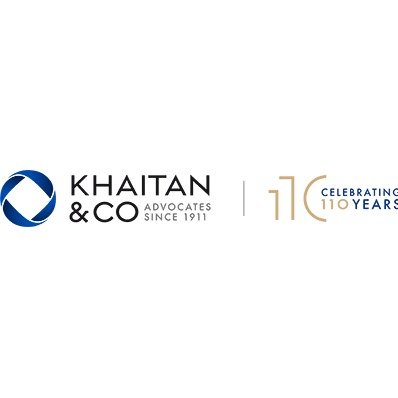Best Reinsurance Lawyers in Mumbai
Share your needs with us, get contacted by law firms.
Free. Takes 2 min.
List of the best lawyers in Mumbai, India
About Reinsurance Law in Mumbai, India
Reinsurance is the practice in which insurance companies transfer portions of their risk portfolios to other parties to reduce the likelihood of paying a large obligation resulting from an insurance claim. In Mumbai, a key financial hub in India, the reinsurance industry is pivotal, given the city's role as a central base for many national and international insurance firms. The legal landscape governing reinsurance is complex, requiring familiarity with both domestic and international regulations influencing risk management strategies, contracts, claims, and underwriting processes.
Why You May Need a Lawyer
Situations where legal assistance in reinsurance is required can vary widely. Common scenarios include disputes over claims settlement amounts, issues with reinsurance treaty interpretations, compliance with international and local reinsurance regulations, and challenges with arbitration outcomes. A lawyer specializing in reinsurance can provide essential guidance in contract clarity, negotiation, compliance, and dispute resolution, ensuring your interests are protected and obligations met.
Local Laws Overview
In Mumbai, and broadly in India, reinsurance is primarily governed by the Insurance Regulatory and Development Authority of India (IRDAI) regulations. Key aspects include guidelines on the registration and operation of reinsurance companies, adherence to underwriting norms, and mandatory treaties with the General Insurance Corporation of India (GIC Re) as the largest domestic reinsurer. Other relevant laws include the Indian Contract Act of 1872, and arbitration laws under the Arbitration and Conciliation Act of 1996, particularly pertinent for dispute resolution in reinsurance agreements.
Frequently Asked Questions
What is the role of IRDAI in reinsurance in Mumbai?
IRDAI regulates the insurance and reinsurance industry, ensuring compliance with standards and promoting a fair marketplace. It oversees licensing, operational conduct, and compliance with treaties.
How does reinsurance differ from primary insurance?
Reinsurance is essentially insurance for insurers. It differs from primary insurance as it involves risk coverage between insurance companies rather than from insurer to individual or business clients.
Can foreign reinsurers operate in Mumbai?
Yes, foreign reinsurers can operate in Mumbai, provided they comply with IRDAI regulations, which may require setting up a branch office or a subsidiary within India.
What kinds of disputes can arise in reinsurance contracts?
Disputes often arise over the interpretation of contract terms, claims settlements, liability transfer, and arbitration results based on the agreements between the insurer and reinsurer.
Is arbitration mandatory in reinsurance disputes?
While not mandatory, arbitration is common in reinsurance disputes due to its efficiency and the technical nature of such disagreements, as stipulated in the contracts.
How are reinsurance premiums determined?
Premiums are determined based on risk assessment of the insurance portfolio, market conditions, historical data, and negotiations between the insurer and reinsurer.
What is a reinsurance treaty?
A reinsurance treaty is a legally binding contract outlining the terms of the reinsurance agreement between the primary insurer and the reinsurer, including the sharing of risks and premiums.
Do all insurance companies need reinsurance?
While not mandatory, most insurance companies use reinsurance to mitigate risk exposure, protect against large claims, and maintain financial stability.
How does reinsurance affect policyholders?
Reinsurance indirectly benefits policyholders by ensuring the financial stability of insurers, thus securing their claims and coverage promises.
What is proportional vs. non-proportional reinsurance?
Proportional reinsurance involves sharing premiums and losses in agreed proportions, while non-proportional reinsurance covers losses that exceed the insurer's retention limit, such as excess of loss coverages.
Additional Resources
For more information, individuals can consult the IRDAI's official guidelines or the General Insurance Corporation of India (GIC Re) for domestic practices. Joining professional bodies like the Insurance Institute of India can also provide valuable networking and informational resources.
Next Steps
If you require legal assistance in reinsurance, consider consulting a qualified lawyer specializing in insurance law. Ensure they have experience with both local and international reinsurance practices and are familiar with IRDAI regulations. Initial consultations can provide clarity on your situation and advice on proceeding with negotiations, compliance, or dispute resolutions.
Lawzana helps you find the best lawyers and law firms in Mumbai through a curated and pre-screened list of qualified legal professionals. Our platform offers rankings and detailed profiles of attorneys and law firms, allowing you to compare based on practice areas, including Reinsurance, experience, and client feedback.
Each profile includes a description of the firm's areas of practice, client reviews, team members and partners, year of establishment, spoken languages, office locations, contact information, social media presence, and any published articles or resources. Most firms on our platform speak English and are experienced in both local and international legal matters.
Get a quote from top-rated law firms in Mumbai, India — quickly, securely, and without unnecessary hassle.
Disclaimer:
The information provided on this page is for general informational purposes only and does not constitute legal advice. While we strive to ensure the accuracy and relevance of the content, legal information may change over time, and interpretations of the law can vary. You should always consult with a qualified legal professional for advice specific to your situation.
We disclaim all liability for actions taken or not taken based on the content of this page. If you believe any information is incorrect or outdated, please contact us, and we will review and update it where appropriate.
















